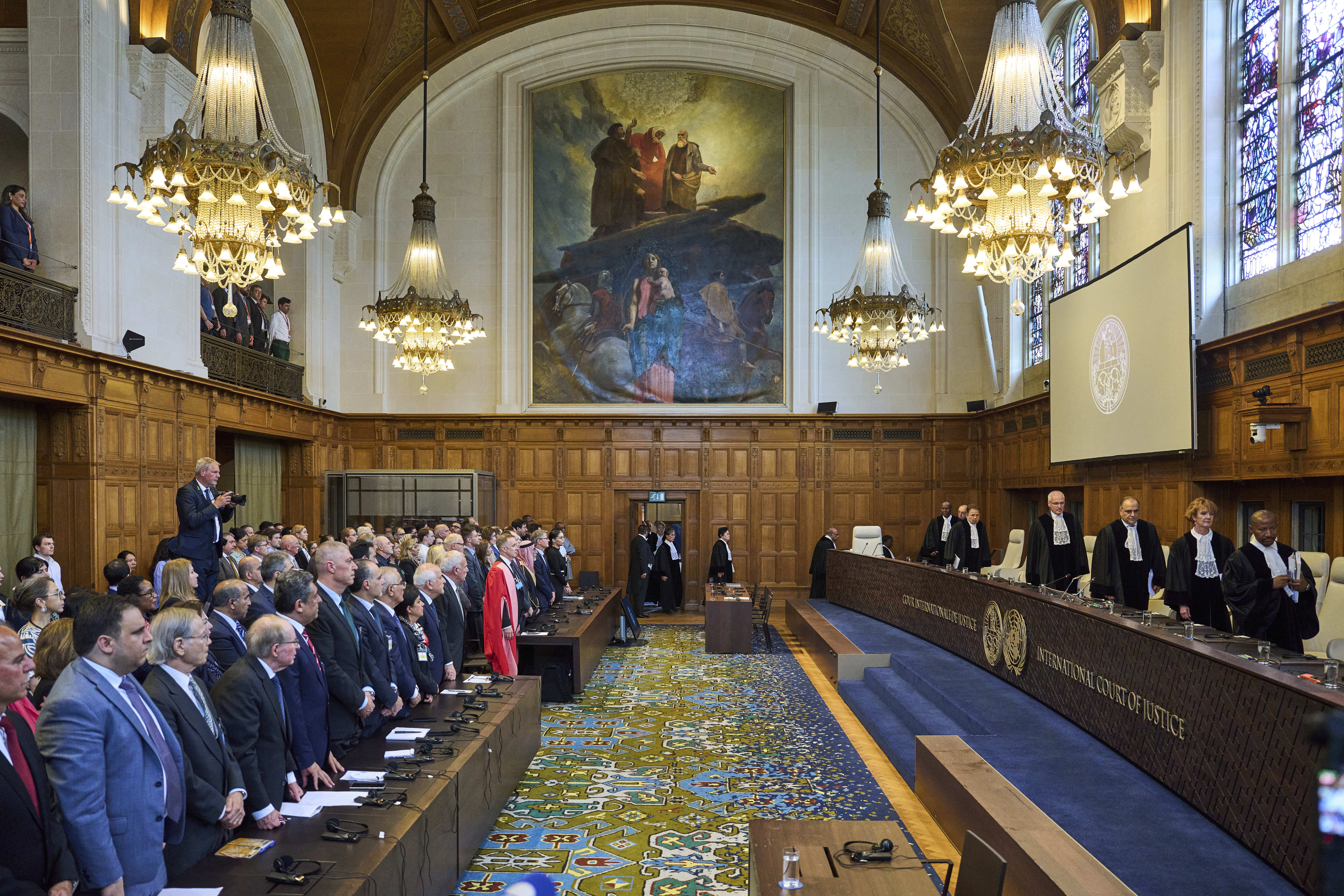While South Africa is receiving increased global support for its International Court of Justice (ICJ) genocide case against Israel, and the International Criminal Court (ICC) head prosecutor, Karim Khan, seeks arrest warrants for Israeli Prime Minister Benjamin Netanyahu and Defense Minister Yoav Galant, the Zionist state is also lobbying the U.S. Congress to pressure the African nation to drop its case.
According to an Israeli foreign ministry cable obtained by Axios, Israel is applying pressure for South Africa to drop its “legal proceedings” in the ICJ over the war in Gaza. Why it matters?

“South Africa has until Oct. 28 to give the top UN court its arguments for continuing the case against Israel over alleged violations of the Genocide Convention during the war in Gaza,” wrote Barak Ravid in the Sept. 9 article, “Scoop: Israel asks Congress to press South Africa to drop ICJ genocide case,” on axios.com.
Israel has threatened South Africa will “pay a heavy price” if it doesn’t change its policy, reported the Middle East Eye on Sept. 9 in the article, “Israel lobbying US Congress to press South Africa to drop ICJ genocide case: Report.”
Thecradle.co reported that Israel hopes South Africa’s new coalition government “can be pressured to take a different approach to Israel and the war in Gaza.” South Africa responded that it will continue and file a “memorial” in October, the president’s office said in a statement.
“South Africa intends to provide facts and evidence to prove that Israel is committing the crime of genocide in Palestine,” the Sept. 10 statement read.
“This case will continue until the court makes a finding. While the case is in progress, we hope that Israel will abide by the court’s provisional orders issued to date,” added the office of the president’s statement, published in the Turkiye news outlet AA (Anatolia Agency).
The comments came amid reports that Israeli diplomats are being instructed to lobby members of the U.S. Congress to pressure the South African government into dropping the genocide case against Israel. South Africa said its genocide case represents a growing global effort towards ensuring peace in the Middle East.
According to South Africa’s Office of International Relations and Cooperation, “Several countries, namely Türkiye, Nicaragua, Palestine, Spain, Mexico, Libya and Colombia, have all joined the South African case against Israel.”
According to Axios, behind the scenes: “Israeli officials said the Israeli foreign ministry started a diplomatic campaign in recent weeks to press South Africa not to push forward with the case at the ICJ. The U.S. Congress is a main tool in the effort.”
Axios claims, “The Israeli foreign ministry sent a classified cable to the Israeli embassy in Washington, D.C., and to all Israeli consulates in the U.S. about South Africa’s ICJ case.
‘We are asking you to immediately work with lawmakers on the federal and state level, with governors and Jewish organizations to put pressure on South Africa to change its policy towards Israel and to make clear that continuing their current actions like supporting Hamas and pushing anti-Israeli moves in international courts will come with a heavy price,’ the cable read.”
This came behind Mr. Netanyahu’s appearance before the U.S. Congress, where he attempted to drum up continued support for his “genocidal war” in Gaza which to date has claimed 41,000 Palestinian lives. Now Israel is instructing its diplomats to request that members of Congress issue public statements condemning South Africa’s actions against Israel.
The statements reportedly would threaten the country with suspending U.S. trade relations with South Africa. “That’s unlikely to happen because the U.S. wants to maintain its relationship with South Africa in order to counter the influence of Russia and China,” explained Axios.
South Africa’s Office of International Relations and Cooperation states the case will remain active until the ICJ reaches a decision, reported newscentral.africa.
“The case, filed in late 2023, accuses Israel of violating the 1948 Genocide Convention through its ongoing bombardment of Gaza since October. In May, the ICJ ordered Israel to cease its military operations in the southern Gaza city of Rafah.
This was the third instance of the Court’s 15-judge panel issuing preliminary orders aimed at curbing the death toll and mitigating the humanitarian crises in Gaza, where casualties have exceeded 40,000,” reported newscentral.africa.
Kelebogile Zvobgo is a Visiting Fellow for Foreign Policy at the Strobe Talbot Center for Security, Strategy, and Technology. In her Sept. 9 commentary published on brookings.edu she explained that for the ICC, “Judges can take months to issue warrants, but they almost always accept the prosecutor’s requests (at least those we know about—some requests are made under seal).” Warrants don’t always result in arrests, but they still matter, Zvobgo explained.
“They hold symbolic value, marking the accused as international pariahs and acknowledging victims’ suffering. Just the possibility of warrants makes it harder for allies to continue lending military and diplomatic aid. Foreign governments, like the UK, have in recent weeks withdrawn aid they think Israel could use to violate international law,” Zvobgo added.
Follow @JehronMuhammad on X













